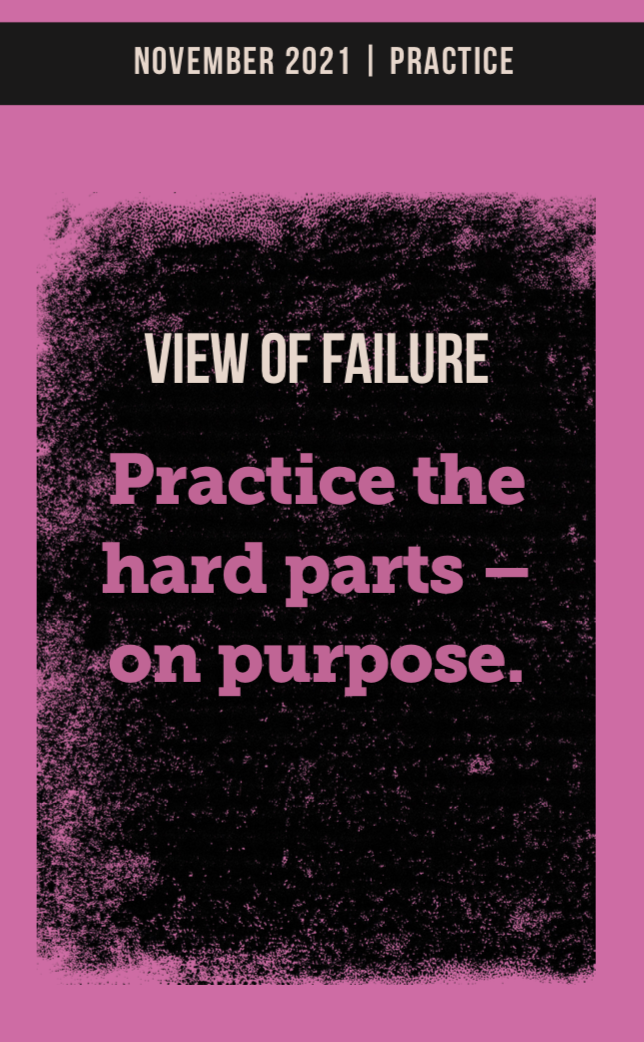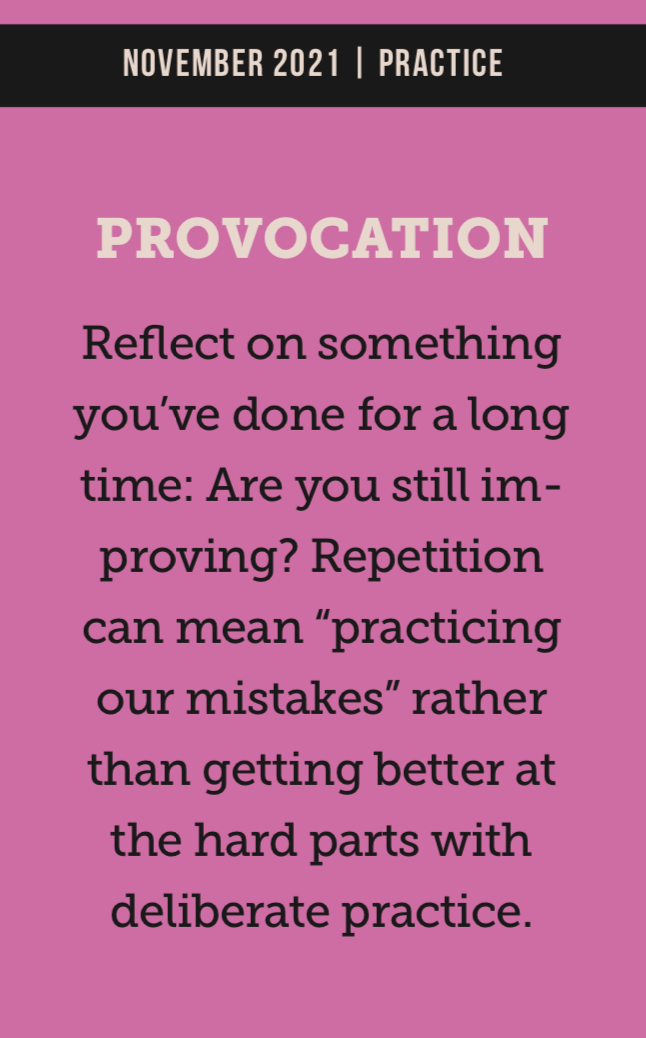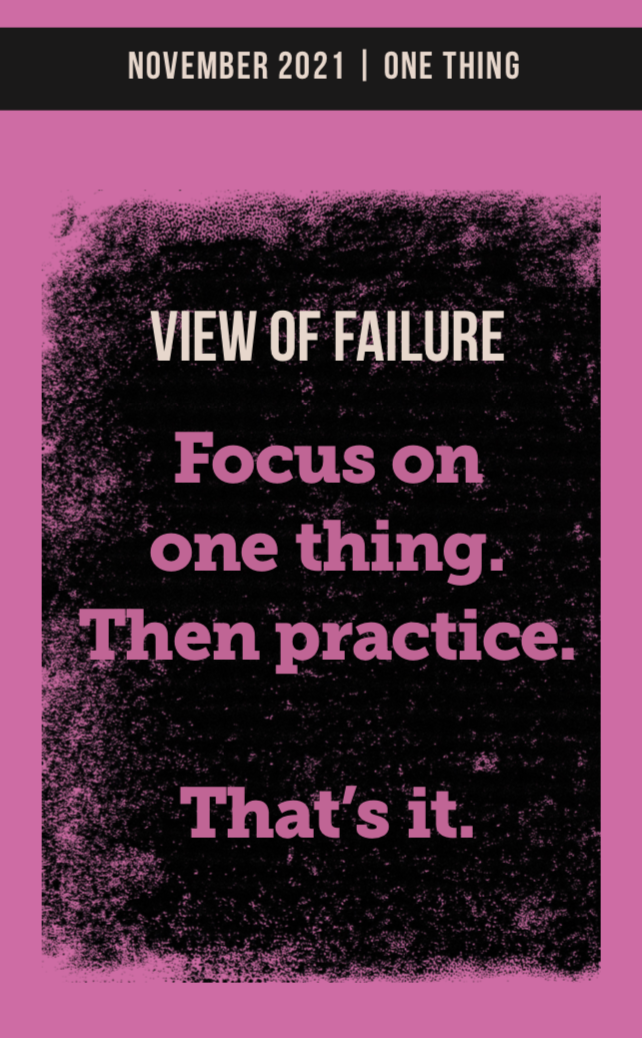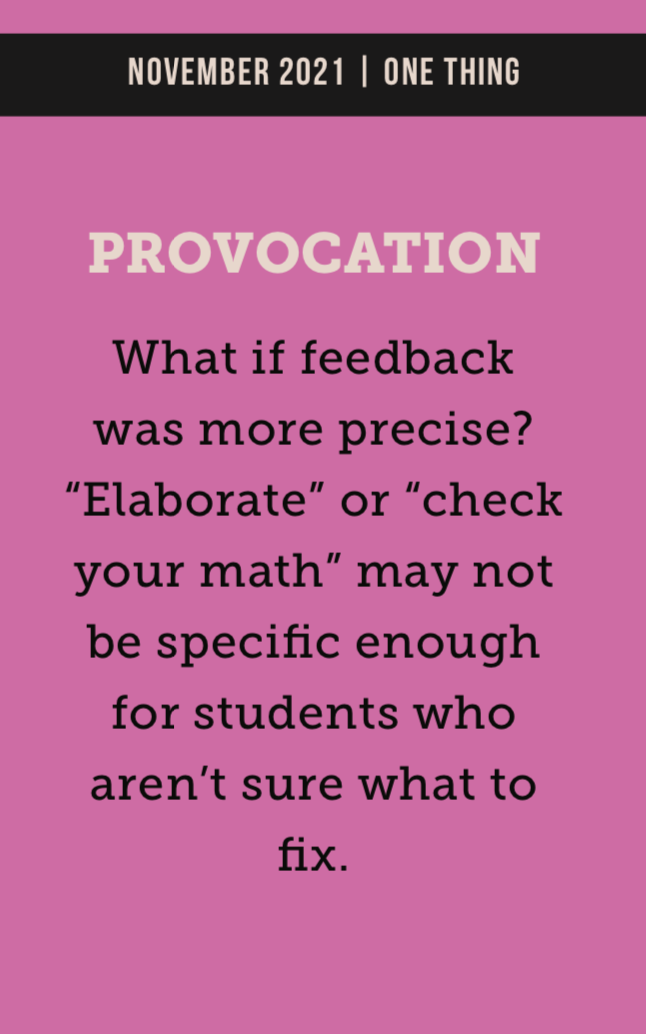NOVEMBER - DECEMBER KIT
Reflection, Feedback and Practice: Less Scary Methods for Getting Better
As we close this calendar year, we’re offering another kit to help you pause and reflect on the last four
months. “Feedback” can feel icky, especially when
we’re doing the best we can in difficult circumstances: Who has time for doing more, and better?
But, we hope that these three experiments offer supportive ways of celebrating the work you’ve done, and finding opportunities for growth through the hard parts.
But, we hope that these three experiments offer supportive ways of celebrating the work you’ve done, and finding opportunities for growth through the hard parts.
Five fun things from your December booklet:
-
A very short film about eggs
-
78,846 animated images of the sun
-
Stunning choreography by Sadeck Waff
-
The best list of Wikipedia lists
- Tattly (temporary) tattoos – we learned about these other four fun things through their newsletter


Experiment:
Put on your best
Tim Gunn suit and
channel his approach
to offering feedback
that lacks ego,
requires questions,
and affirms our ability
to do excellent work.
Understand the designer’s intent: Gunn asks questions in order to understand a designer’s purpose and to help the designer clarify their own objectives. That way, he can ground his feedback in their goals for themselves, not his own priorities. Ego-less feedback!
Offer direction, not prescription. Gunn doesn’t tell folks what to do. Instead, he helps them close the gap between where they want to go and what they’ve done. It’s supportive, not evaluative.
For more tips on how to offer feedback like Tim Gunn, check out: Everything I’ve Ever Learned About Giving Design Critiques I learned from Tim Gunn
Question prompts:
- What do you want me to know about _______? (understand intent)
- What feedback would be most helpful to you?
- Have you thought about _____ (understand intent)
- What misunderstanding do you think I might have based on what I’m seeing here?
- Why did you decide to _____ instead of ______ ? (understand intent)
- This reminds me of ______ (offer inspiration)
- You could read/watch/visit ______ (offer inspiration)
- What if you _____ (offer direction, not prescription)
- Would you consider ______ (offer direction, not prescription)
- It would be awesome if _______ (offer direction, not prescription)
- For understanding a designer’s (teacher’s) goals:
What do you want me to know about _______?What feedback would be most helpful to you?Why did you decide to _____ instead of ______ ?


Experiment:
Identify an upcoming lesson
that you’ve taught
before. Where do
students typically
struggle? Redesign
the lesson to help
them intentionally
practice those parts.
“One of the most important questions
we can ask as educators is, ‘What
makes this hard?’ When we have a
good answer to this question, we
are anticipating the hard parts that
go with a particular topic or activity.
Maybe with the right approach, we can
prevent those hard parts from doing
their worst damage.”
– Making Learning Whole,
by David Perkins (page 101)
Where do students get stuck? Consider:
- Foreign knowledge (often from the
past) is hard to make sense of be-
cause it doesn’t align with our time,
place, beliefs, and ways of living
today
- Skilled knowledge refers to things that require practice
- Conceptually difficult knowledge is often abstract, non-linear, and complex


Experiment:
Simplify your
feedback by choosing a single thing
for students to get
better at, and then
helping them practice it. Resist the
temptation to try to
improve everything
at once.
Feedback is often too general to act on. (“Needs more evidence” doesn’t help us clearly understand what to fix.) Worse, sometimes there’s no opportunity to act on it anyway – like when students never write a similar essay again, or we receive feedback at the end of a course when it’s too late to make changes. What would it feel like to match clear, actionable feedback with intentional opportunities to practice it?
Try it:
- Review student work, and make note of a skill that many students seem to be missing.
- Design a lesson that focuses explicitly – and exclusively – on that skill.
- In the lesson, tell students what skill they are working on, why you’re focusing on it, and specifically what they can do to improve it.
- Create a way for them to practice.
- If they get it, repeat with a new skill. If they don’t, repeat with a different lesson.